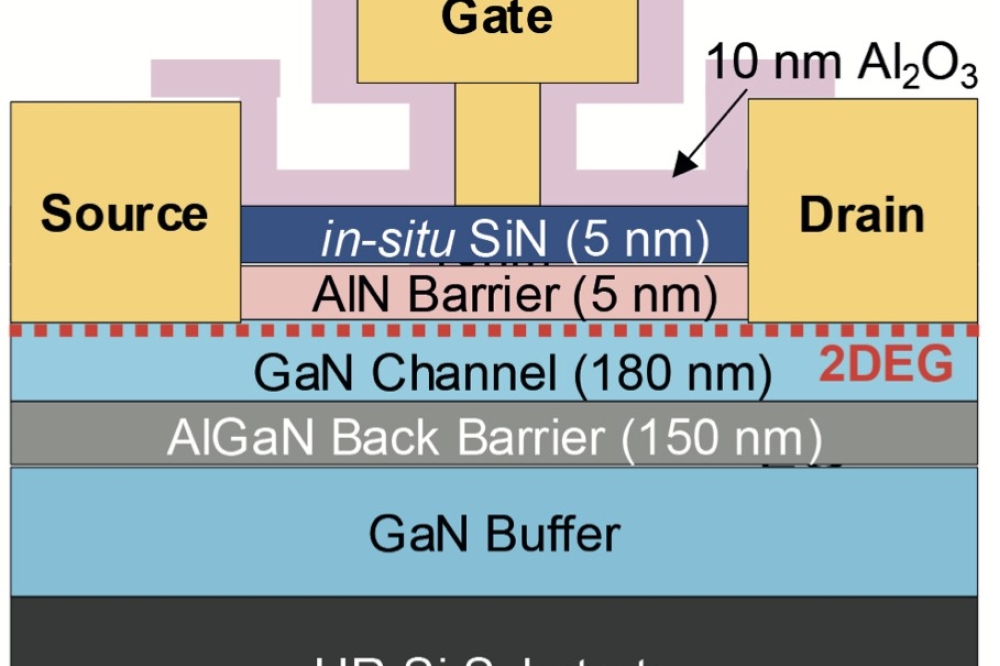Gas Sensing Solutions expands team

The Scottish technology company, Gas Sensing Solutions (GSS), has hired Bill Proudfoot to be its second business development manager. He is the latest addition to the company's team that is growing to meet increased demand for its award-winning products. This growth is so great that the company is in the process of doubling the size of its premises to accommodate the additional staff and more than doubling its production capability.
Bill Proudfoot, GSS's new Business Development Manager by some of GSS's many awards
The company has revolutionised the design of carbon dioxide (CO2) sensors by using proprietary LED technology that dramatically cuts power consumption and speed of response. This enables CO2 monitors to be designed that, for the first time, can be battery powered with long operational lives. This opens up whole new application areas such as battery-powered CO2 monitors for offices and factories that cuts out the costs of mains cabling. Additional areas include CO2 level monitors for diving, wearable alarms for people who might enter high CO2 concentration areas in factories, and monitoring of CO2 levels in exhaled breath as an indicator of ill health.
"Over the years, we have developed excellent relationships with customers around the world with a global network of distributors providing local support," explained Calum MacGregor, CEO at GSS. "At the end of last year, we added two more prestigious awards to our collection, i.e. the 2017 Elektra Awards for Design Team of the Year and for Excellence in Product Design -- Medical. These have raised our global profile even further as the organisers, Electronics Weekly, have a world-wide audience. We have also invested heavily in trade shows around the world and our website to further raise our global presence and so we have hired Bill Proudfoot to respond to the resulting enquiries and further develop our export market."
Bill Proudfoot added, "I have been working in the electronics industry for many years and I think that GSS technology is a real game changer. It enables small, battery powered CO2 monitors to created that were previously impossible as rival CO2 sensors are so power hungry that they need a mains supply. It's perfect timing with the growing realisation of the effects of even slightly elevated levels of CO2 on health. Yawning in a stuffy room is not lack of oxygen but a level of CO2 high enough to start affecting your ability to think clearly. Higher levels have even worse effects on health. Authorities around the world are starting to become aware of this and legislate for maximum CO2 levels, and this in turn is driving the demand for CO2 sensors. I am pleased to say that Scotland has pioneered this with the requirement that all new houses must have a CO2 level alarm. The importance of CO2 monitoring has recently been highlighted by NASA using GSS sensors at the heart of personal CO2 monitors worn by the crew of the International Space Station where high levels of CO2 could really compromise health."
GSS technology
CO2 sensors work by measuring how much light is absorbed by CO2 molecules in the 4.2 and 4.4 microns range as it passes through the sample gases, which is called Non-Dispersive Infra Red (NDIR) absorption. The amount of absorption indicates how much CO2 is present. GSS developed proprietary LEDs that are specifically tuned to emit at these wavelengths. The LEDs use very little power and turn on almost instantly, enabling sensor readings to be made in less than a second. As a result, GSS has pioneered the development of CO2 sensors that can be powered by batteries for long periods of up to ten years. Competitor sensors use IR sources that require significantly more power per measurement and also take much longer to reach a stable condition for a measurement, resulting in the need for mains power.


































